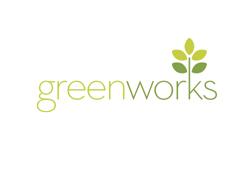Mohawk Launches “Greenworks”
Dalton, GA, August 22, 2007--Mohawk Industries has literally hundreds of environmentally-oriented projects in the works at any given time. These range from internal efforts to cut emissions at a single plant, to the industry’s largest recycling project that converts as much as one-quarter of all the soft drink bottles sold in the U.S. into carpet fiber.
Mohawk has launched a new “umbrella” program called “Greenworks” that places all environmental projects under a single platform for their customers and shareholders.
“It’s easy to say you’re green. It’s a lot more difficult to actually be green,” said Frank Endrenyi, vice president of sustainable development for Mohawk. “Greenworks is designed to help people understand how much effort goes into this process—and how it impacts every level of our company.”
Endrenyi said Greenworks covers the spectrum of environmental practices--recycle, renew, reuse, recover, and reduce.
“Mohawk is the largest recycler in the flooring industry. We currently divert more than three billion pounds of pre- and post-consumer waste from landfills, and this number continues to grow,” Endrenyi said.
“More than 500 Mohawk products—carpet, carpet tiles, cushion, laminates, and ceramic tile—contain recycled materials,” The materials, he said, come from Mohawk processes and from a range of other products, including old tires, roofing materials, old wood furniture, soft drink bottles, carpet, and others sources. He said the program will get even bigger.
One key new element in Mohawk recycling is its new Greenworks Center, which is unique because it can process not just nylon 6 but all major types of synthetic carpet fiber.
Greenworks Center processes 100% of the carpet—fiber, backing, and latex—and recovers about 90% of all materials for reuse. The Greenworks facility is also portable, so it can go to the carpet, which makes recycling more feasible.
“It can also process certain thermoplastic non-carpet recyclables, which makes it even more attractive to recycling companies," Endrenyi said.
Greenworks Center is now open in Chatsworth, Georgia but other locations can be built. Because the plants can be built anywhere, recyclers can keep costs down by being close to any
Greenworks processing center.
Endrenyi also believes that the Greenworks platform will help convey a better understanding of Mohawk’s many programs designed to reduce the use of energy and materials and to boost manufacturing efficiency. “Green doesn’t have to mean more expensive,” he said. “In fact, the opposite is often true.”
He noted that Mohawk’s plant in Dublin, GA stopped using natural gas earlier this year and now generates energy from yellow grease, a by-product of food processing. “The cost is similar to natural gas and the resource is renewable,” he said. Many Mohawk plants now use biomass products for energy.
He also said that since 1995, Mohawk has cut its use of water in select manufacturing facilities by half, and that several plants have 100% recycling of waste water generated from manufacturing. Phosphorous emissions in the Northwest Georgia area have been reduced by 70%. Carpet cores are made from waste carpet and other manufacturing waste materials rather than paper, saving thousands of trees each year. The plastic cores also last longer and are less likely to break. When they get old, they’re recycled again to make new cores.
Related Topics:Mohawk Industries
